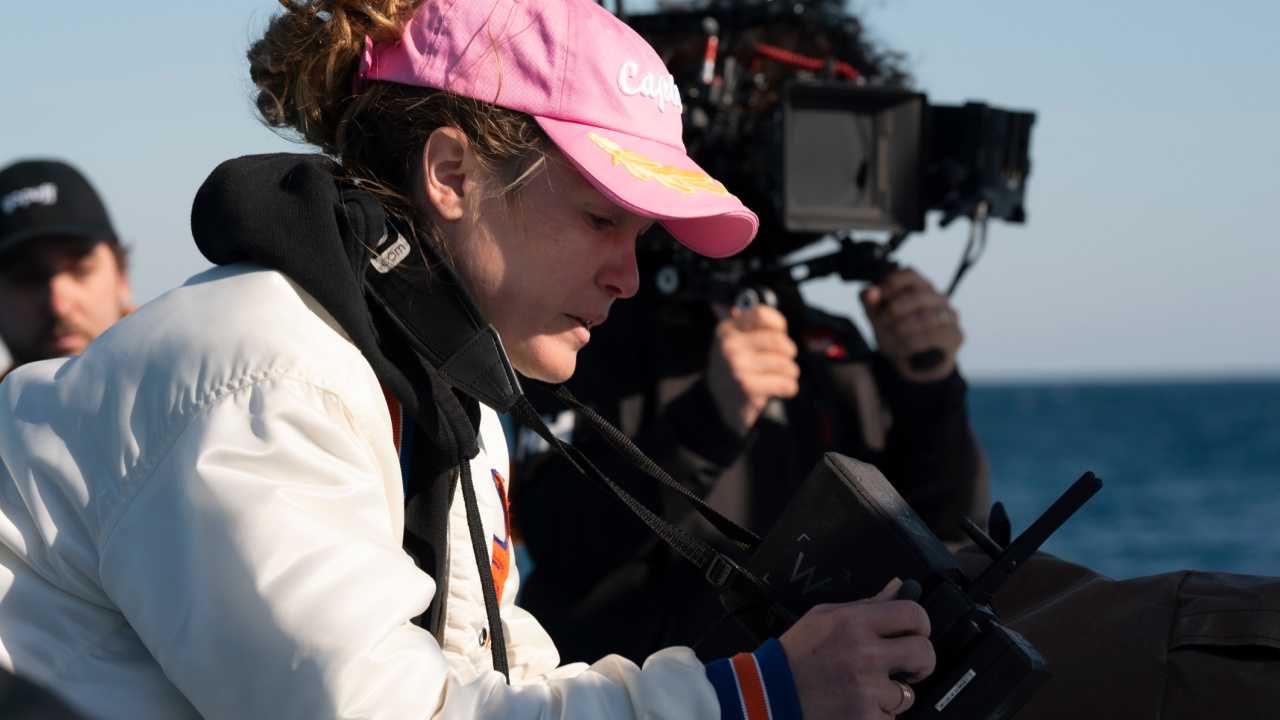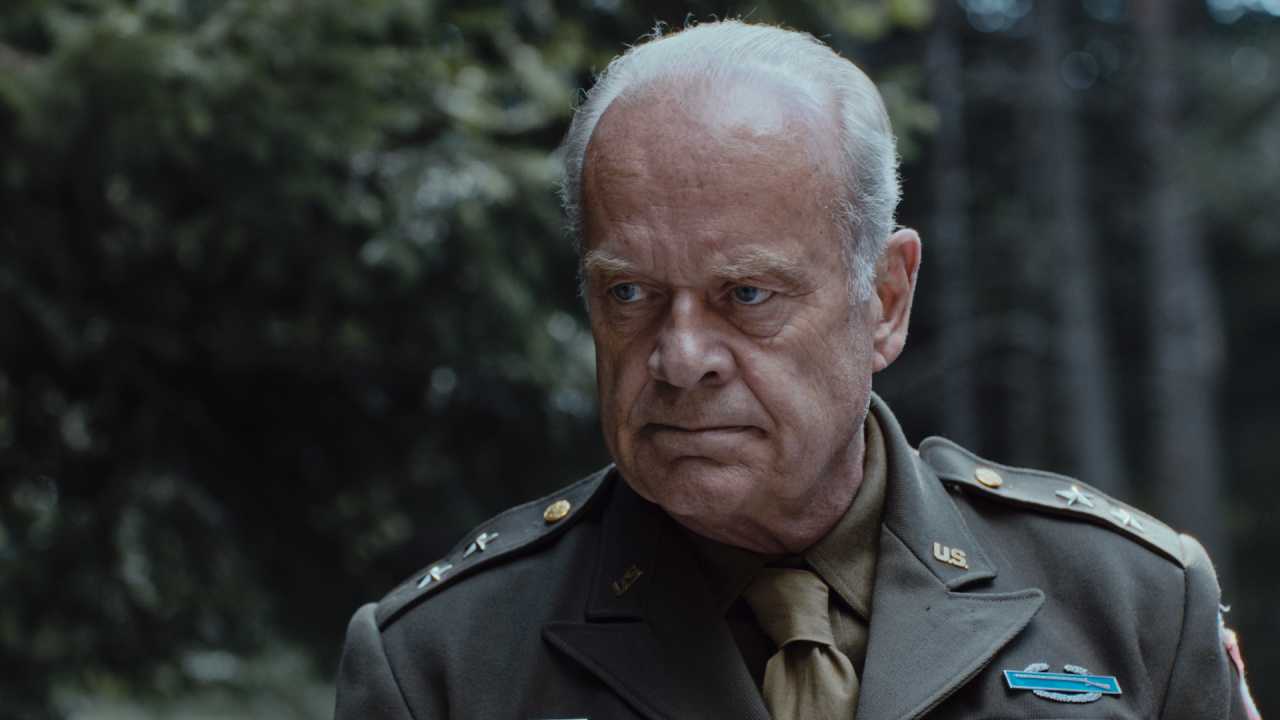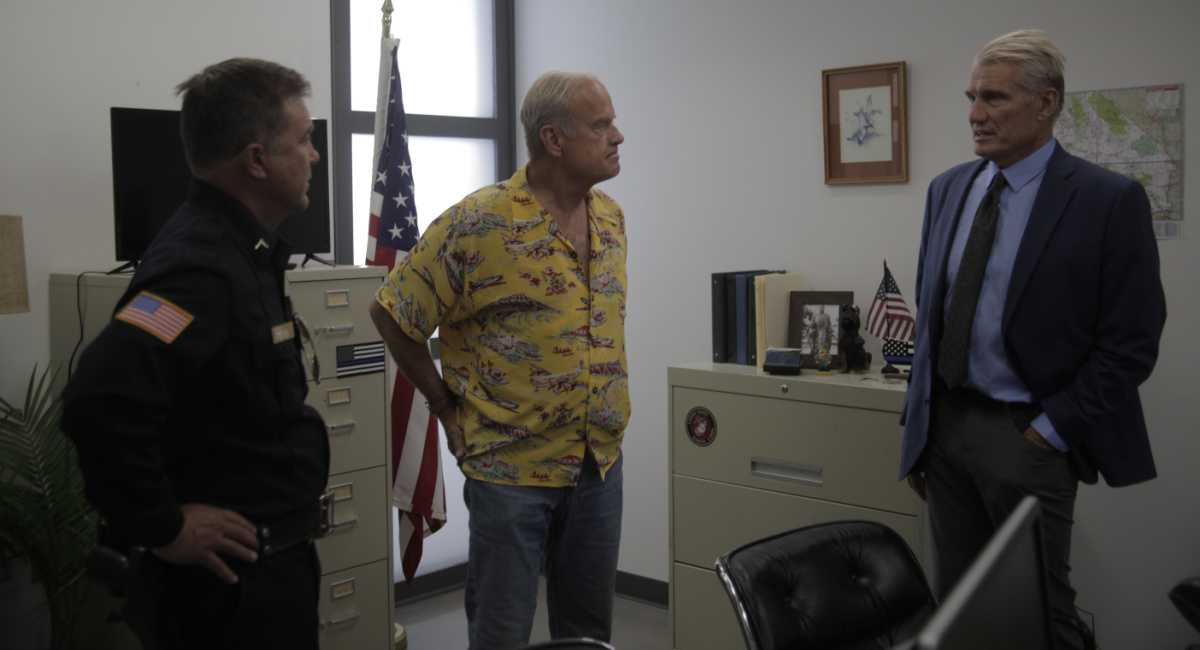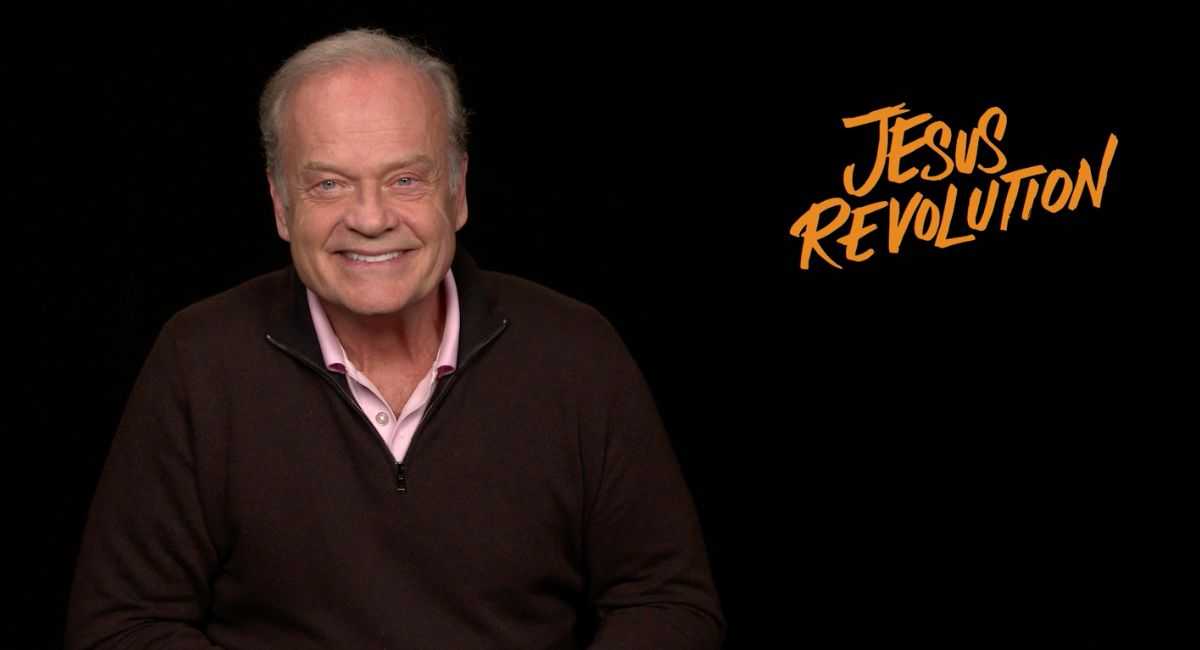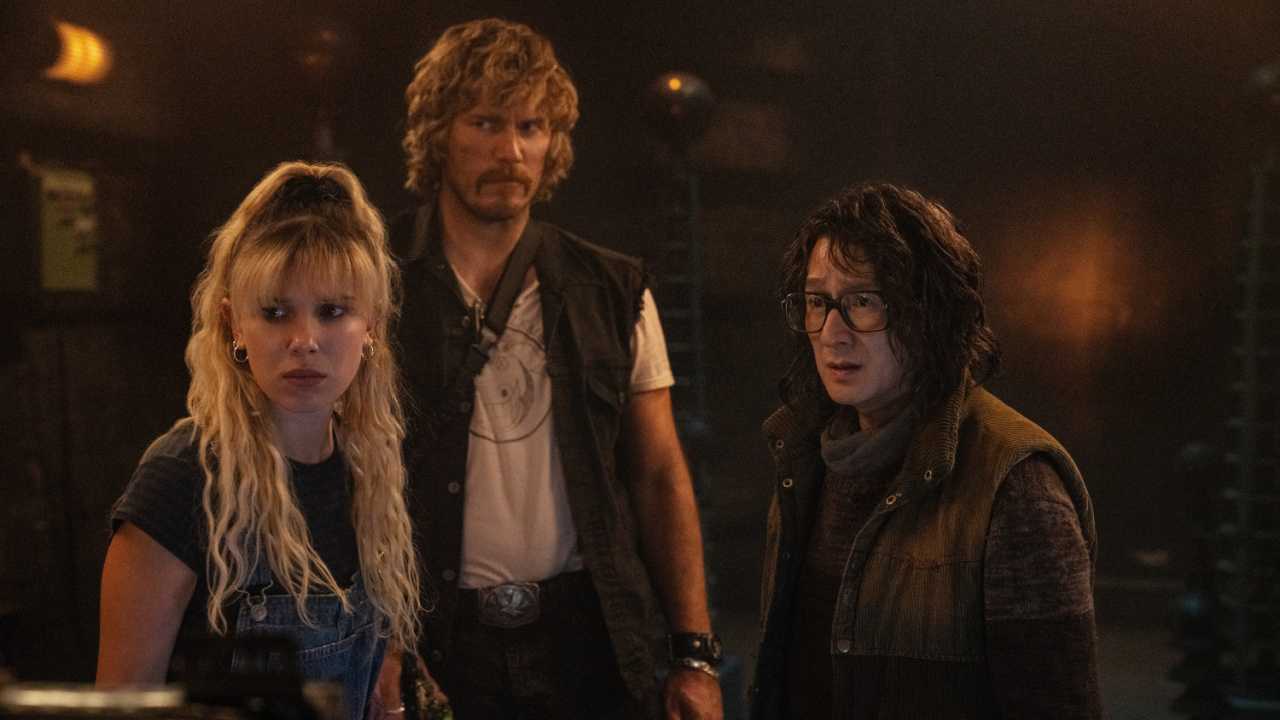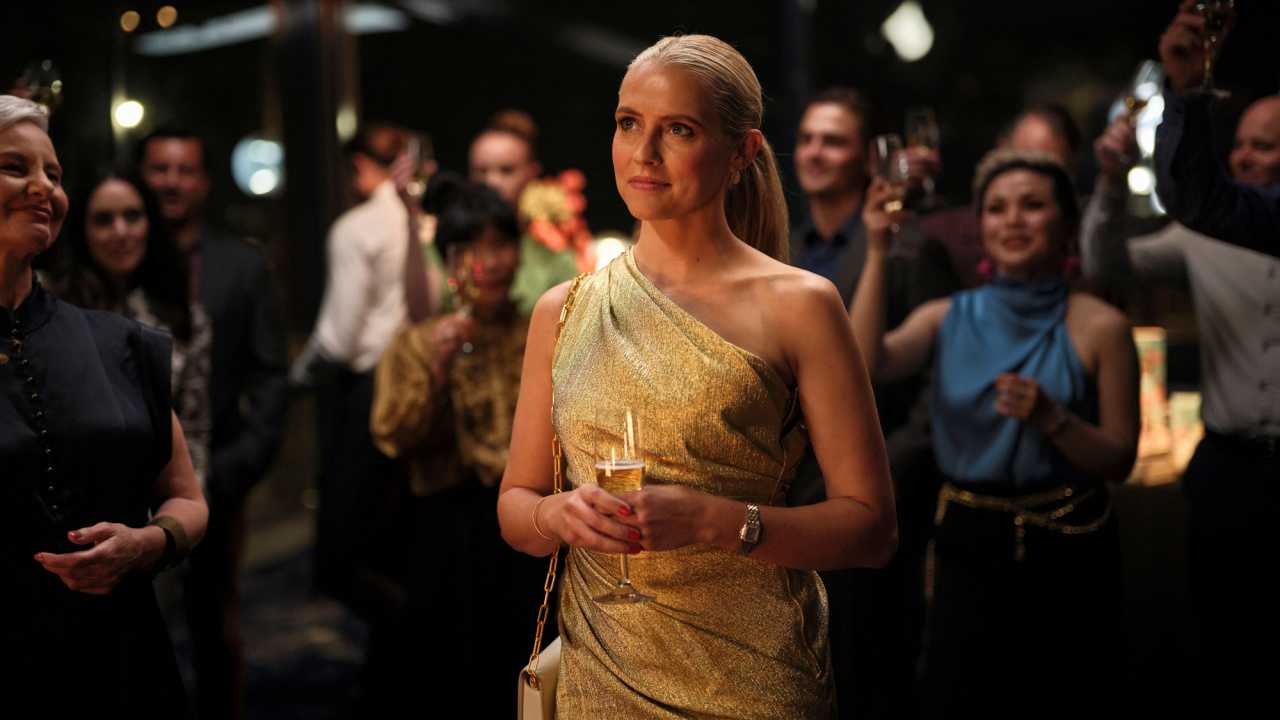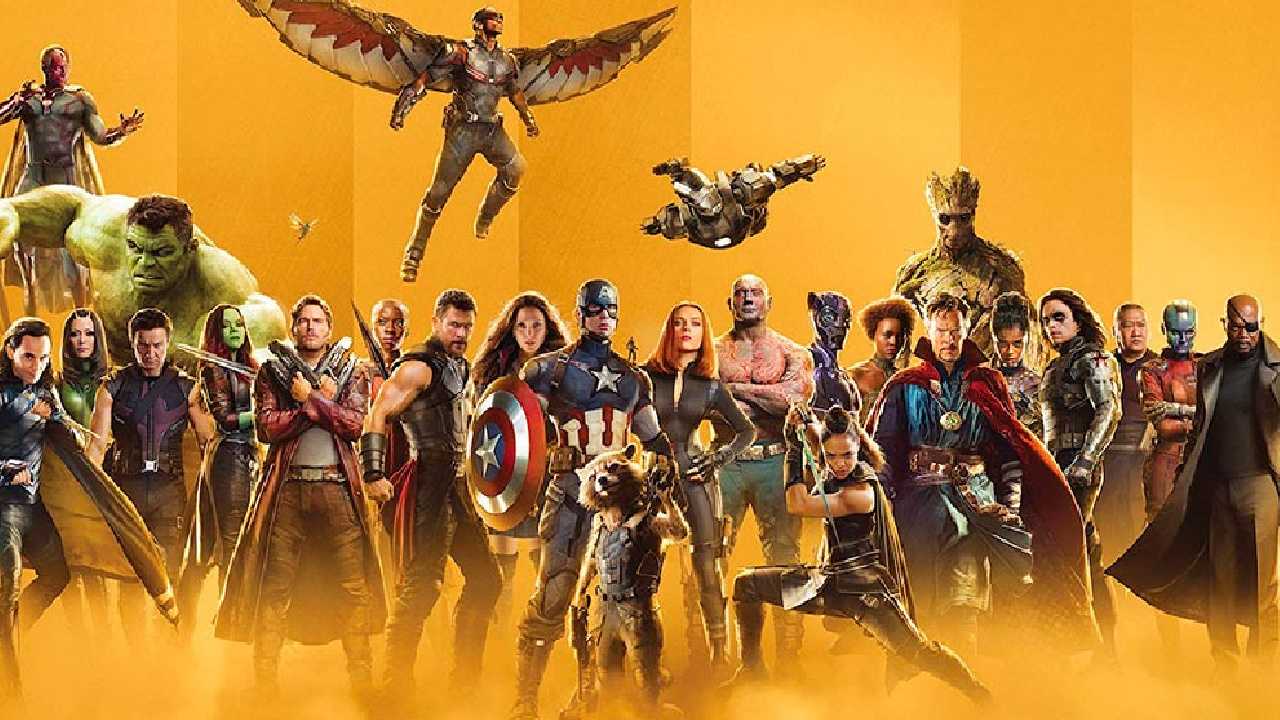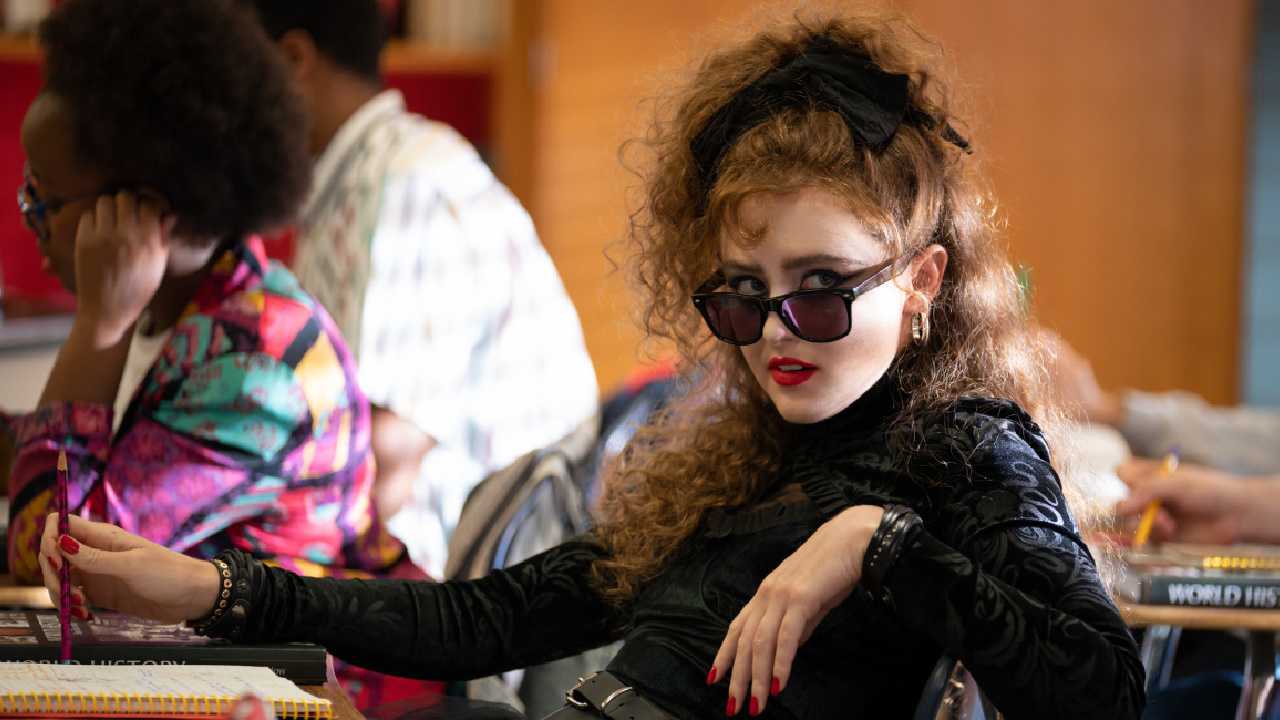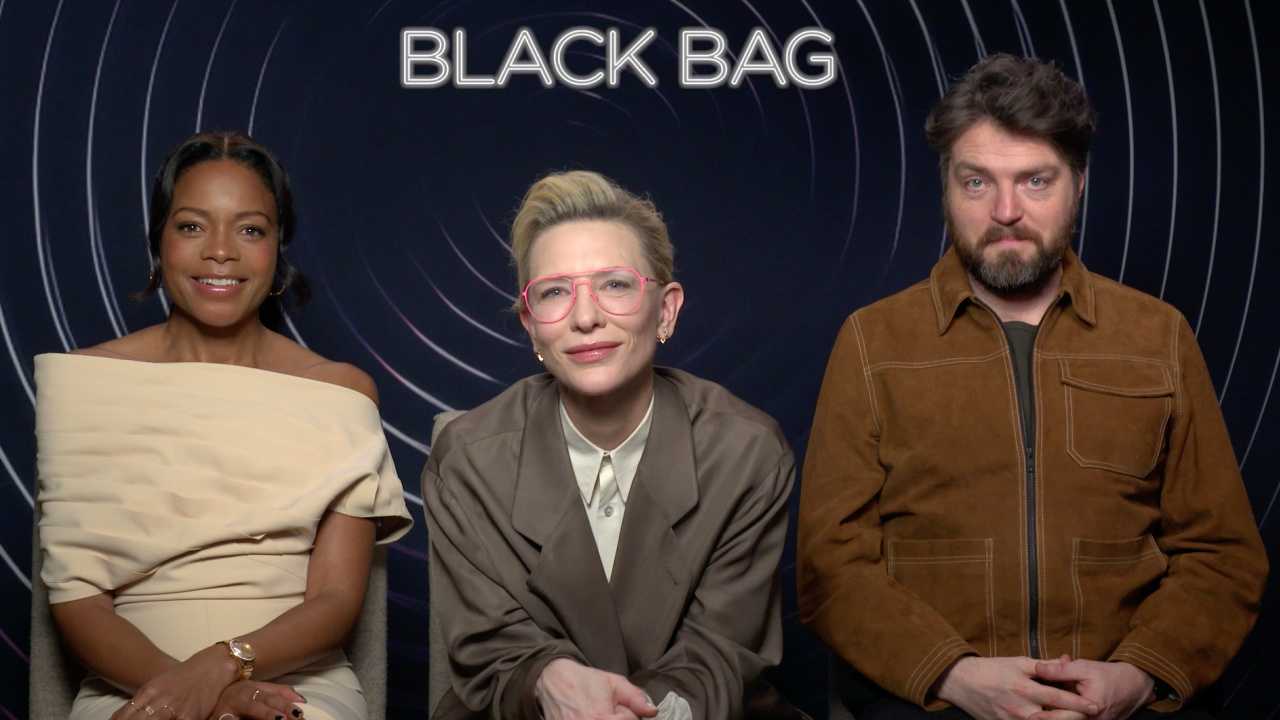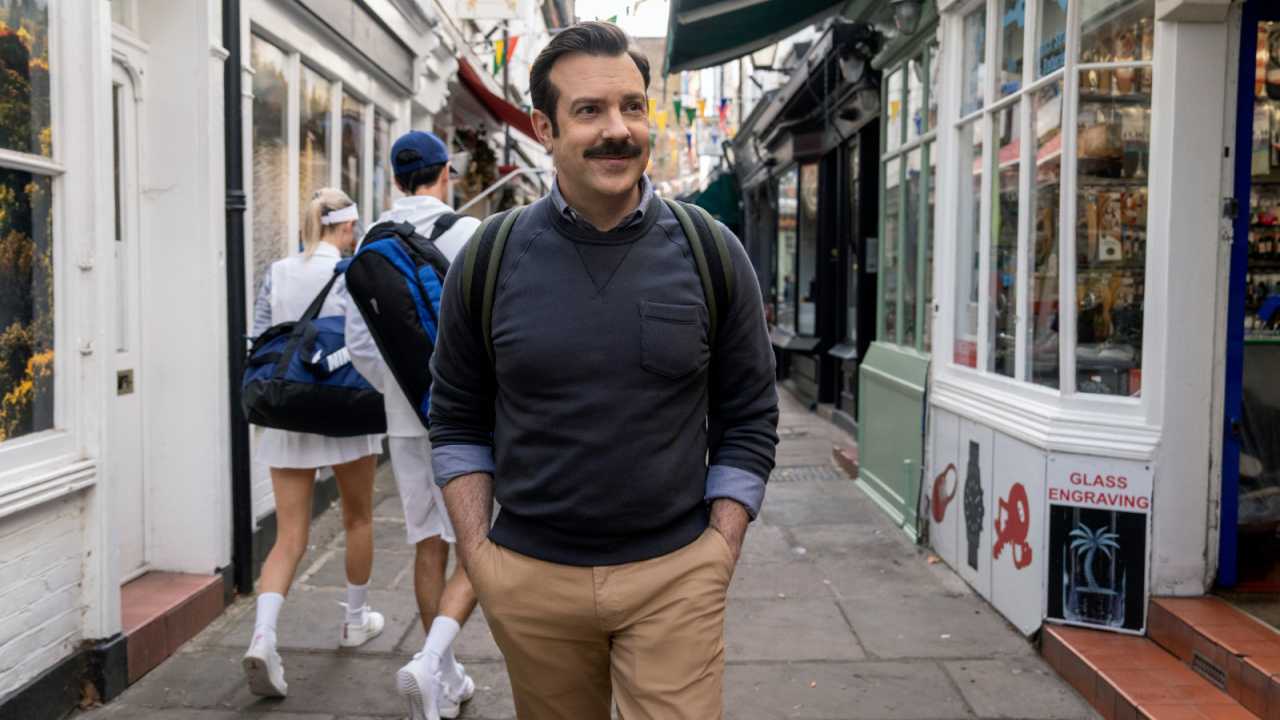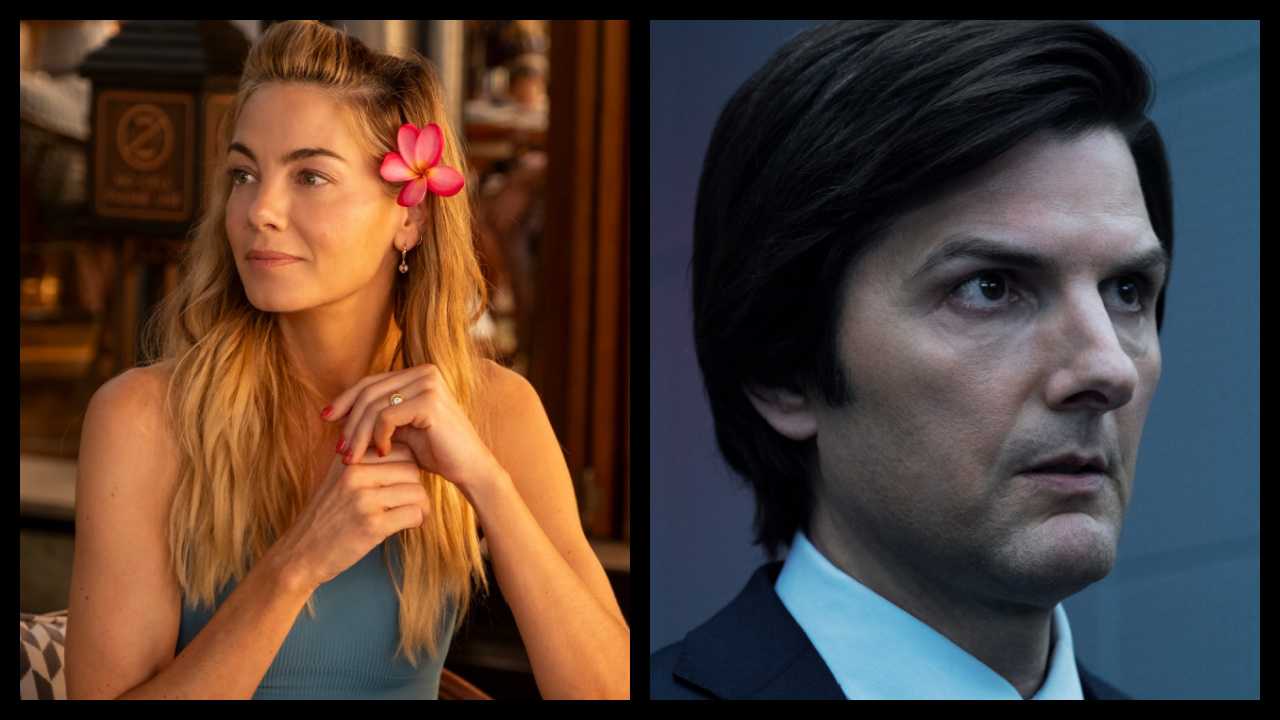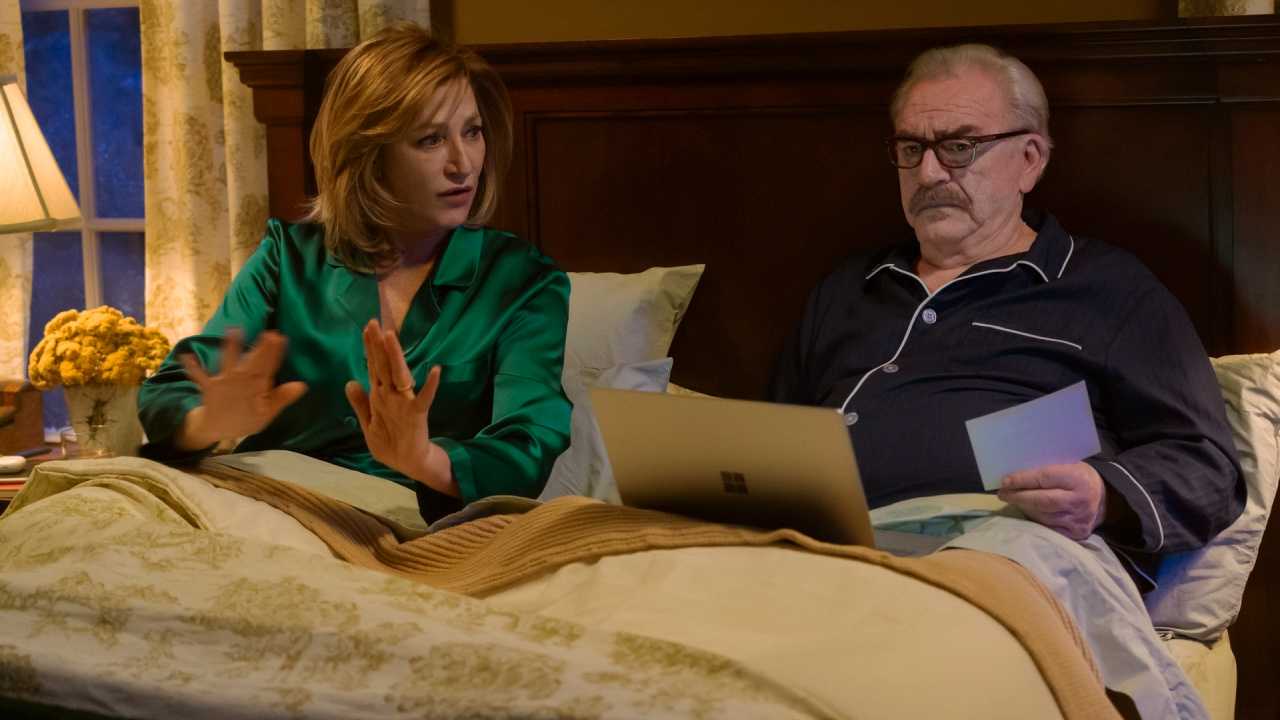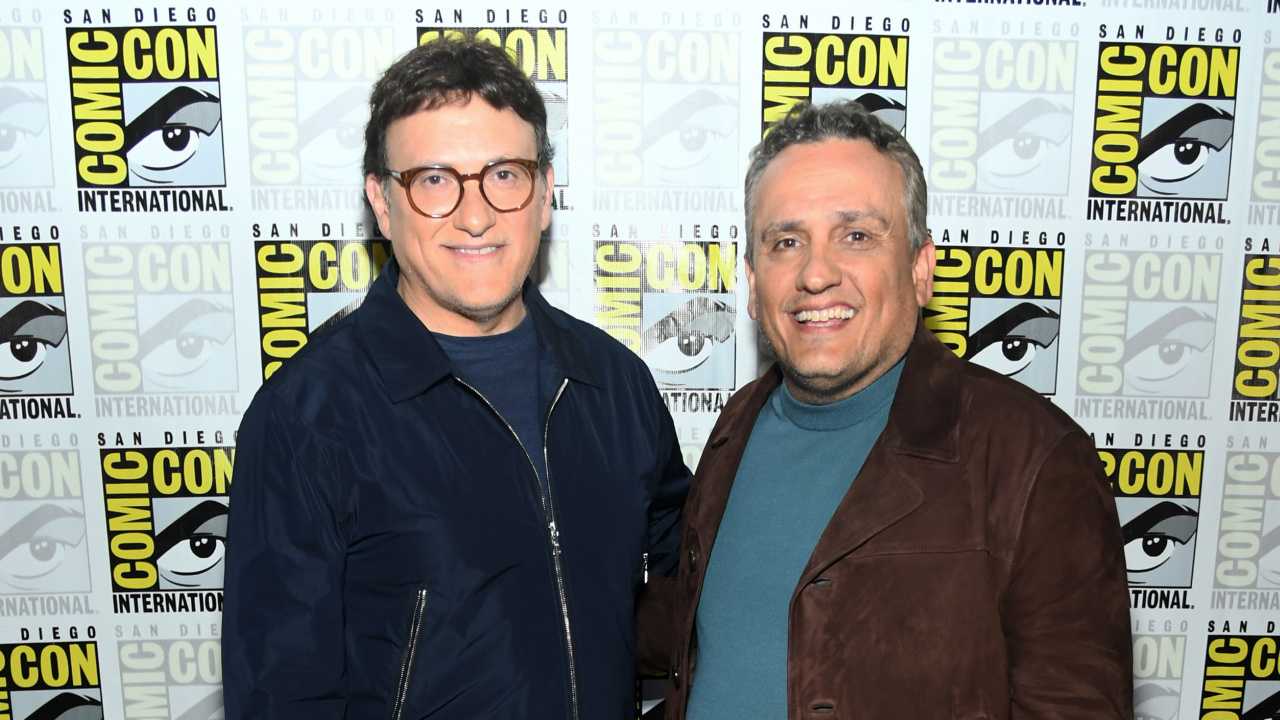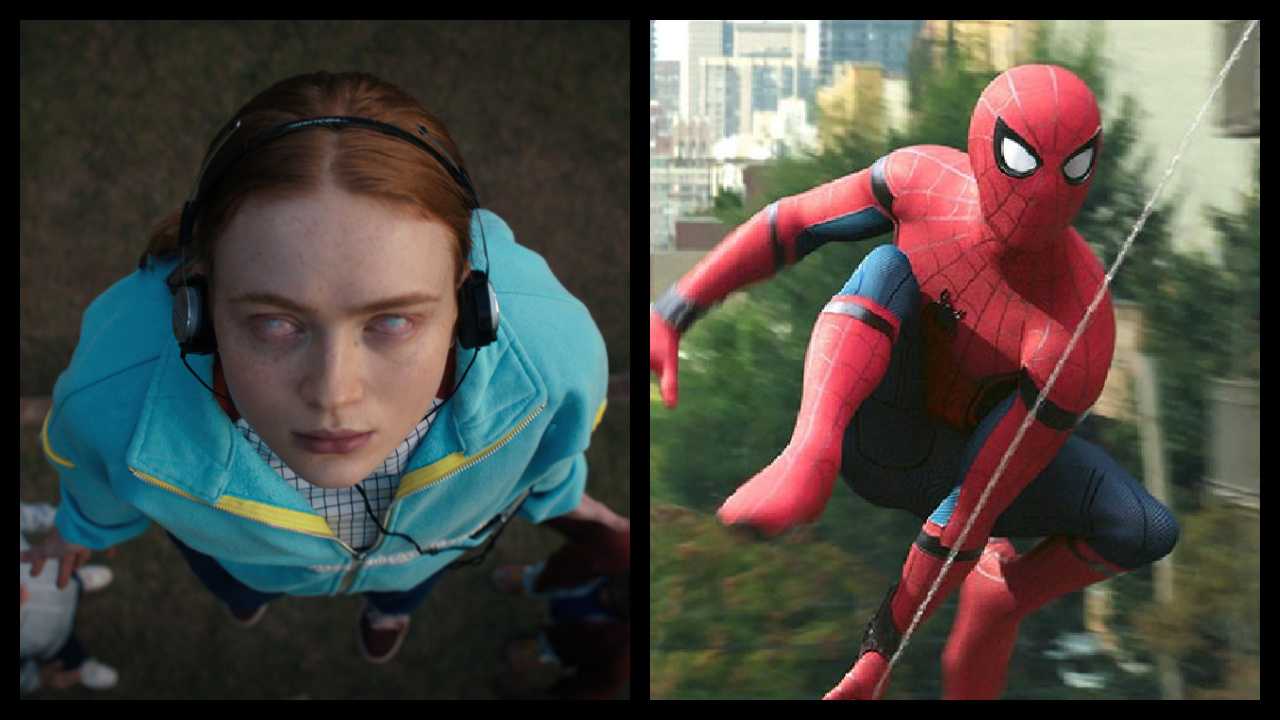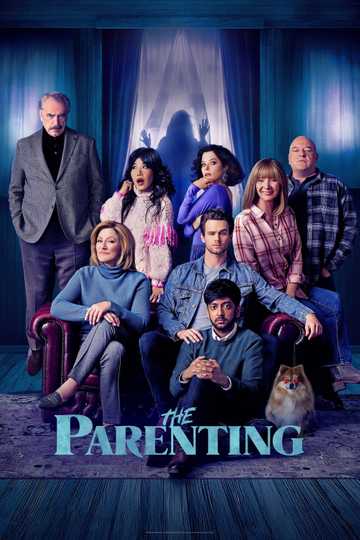‘Charming the Hearts of Men’ stars Kelsey Grammer and Anna Friel discuss their new movie
The stars of the movie talk about how the movie balances romance with civil rights legislation in the 60s.
In ‘Charming the Hearts of Men,’ Kelsey Grammer plays a Congressman that insists on including women’s rights in the Civil Rights Act of 1964, after being inspired by a Southern woman named Grace Gordon, played by Anna Friel. The stars took time to talk to us about their new film.
First, Kelsey Grammer talks about working on his Southern accent.
Moviefone: I spoke to your co-star Anna, she said the hardest prep for her was the Southern accent. She said you had it down so well that she really felt she had to rise to that level.
Kelsey Grammer: Oh, that's really sweet of her. Anna is marvelous in the movie. I know she was quite worried about it, but the South and England were so connected for so long that honestly, most people think the Southern accent is probably what English people sounded like a couple of hundred years ago. It's not that far apart. But I was raised, my godfather was a fellow born in Virginia, and he had a very, very recognizable Southern accent. And so, it was very easy to kind of fall into it.
MF: This is set in the sixties, so the costumes, the cars, the sets, what was that like? And does that really help you get into your character?
Grammer: Well, it's fun. The car definitely did. Because there was that sense of, he's important, an important fellow. When he shows up, he's important. And of course, he's dirt poor at the same time. It's kind of an irony, but I mean, our politicians today are probably all swimming in cash. But back then, I think this man that this character is based on, was a pretty selfless guy. I mean, he'd served in World War I and in World War II, and then served in Congress. I mean, he was a guy that dedicated his life to the United States.
And in retrospect, to probably trying to improve the world for a lot of people, because his last major gesture during the '64 legislation was designed for men. And without his stubborn little voice that said, "We have to include women," who knows what might have happened? But the fictionalized relationship between Grace and the Congressman is just, it's like candy, I think. It's a lovely time.
MF: This touches on the Civil Rights Act of 1964, a very important time in history, but this movie really is a romance.
Grammer: That's what's interesting about it. I mean, she had it, the writer, Susan and director, has such an interesting way of offering a lens into this experience, into that time and into what women were dealing with in the South and maybe all over the country. Because, I mean, it was still a law that you couldn't give a loan to a woman in the early '60s. She's one of the first women to get a loan in the '70s. I mean, she's for her businesses that she started, she's an extraordinary person.
And this idea of charming the hearts of men to bring this change about of including women was really, it's a marvelous way to do this. I mean, I was very impressed and a perspective that you wouldn't have imagined. But she has such depth of respect for every generation that's in that move, depth of respect and for what they went through and for what Martin Luther King, Jr. accomplished and for what the people who were living in the rural South were doing in the juke joints and stuff.
It's so well-thought-out. I was very impressed with it. That's one of the reasons I wanted to join because I think there's a fabric in the film that is just, it's rich, rich, the texture was rich. The food in it is part of what gives it a richness. They relate to when he talks about those meatballs are ready, and you recognize these people. And that whole idea of how you get through life with charm.
I mean, if you have the good grace, and it's wonderful that she named the girl Grace in it, to still find moments in our lives that blithe our lives, that make them better. And I just thought she wove that fabric all through it. I mean, I loved the people that she had. And she covered the controversial aspects of what was going on directly at that time, but timelier aspects, but she also painted it against the backdrop of a place that was historically a gentle place. And it was really fascinating.
MF: Susan's in the restaurant business, she has a restaurateur, and she's in the South. She really, I assume, knows what it was like.
Grammer: She gets it. Yeah, she told me that her first restaurant, all the recipes are based upon the woman who raised her, was the granddaughter of a slave. And those are basically her recipes, her grandmother's recipes. And that those have been passed straight in a straight line down to that place where they serve those meals today. I mean, it's an amazing sense of history.
MF: Amazing. Just really amazing. Why has the Congressman never married?
Grammer: Well, I think he was probably a little too busy. Maybe he was a little too... Maybe he liked girls too much. In reality, he was about 80 years old, when this movie takes place. We tried to make him look a little more attractive to a woman as lovely as Anna Friel. We brought him down just a bit in age, charmed him up maybe a little bit. But he was always known as a guy that was all for women's rights. He had had a relationship through the '20s and '30s and '40s with one of the more famous women's advocates in Washington, DC, who was played by Diane Laddl. But that character is an historical character, and they had an historical relationship, that Congressman and she.
MF: I didn't know that that your Congressman was actually modeled after an actual Congressman. It sounds like it was.
Grammer: Yes, he was. It's the real deal. And he's the guy that said, "We got to do women, too." And, which is amazing.
MF: Amazing. Yeah. Amazing. I did not realize actually from the movie that he wasn't wealthy. I mean, I didn't get that he was wealthy, but I didn't get that he was poor.
Grammer: Yeah, there's only a couple of references to it.
MF: Well, he has a driver.
Grammer: Yeah, the girls start talking, well, because I think he's paid by the government, I'm pretty sure. But the girls started talking about how they're going to get them a rich Congressman, right? And it's only a very fleeting moment in the kitchen, I think. And they sort of flashed to the scene with Aml or Walter and the Congressman, when he's getting dressed for this date night, and he says, "You better be careful. You know what I mean? They're looking for something you don't have." And so, it's a very slight mention.
MF: That relationship with Walter, was that common during that time?
Grammer: Well, I think so. I mean, the way I grew up. I mean, if you're talking about the black and white thing, okay, yeah. My granddad died when I was young, I was 12 years old and my grandmother actually asked Ted Thurston who was the guy that ran a landscape company that did our lawn and several other people in the neighborhood. Said, "Would you mind spending a little time with my grandson? And just, you know, talking about being a man with him, what it's like, because he's lost his granddad." And my granddad was the only one they had for that. And Ted was great, Ted Thurston. He was a great man, a lovely man. And he did help. He inserted like a plank that I could still hang on to. And he was wonderful.
MF: That's a beautiful story.
Grammer: Yeah, so I think it's been common forever. You know what I mean? People find commonality, they just always have. It's just, it doesn't necessarily sell tickets to this or inspire a political movement or anything else. It's more fun to have people mad at each other and pissed off. But in the end, the real relationships, I remember, and I've had several with any number of people. It's the quality of the love you feel, you know? And it's got nothing to do with black or white or anything else. When I was 17, I was doing demolition work with a couple of guys, Jesse and Jimmy, older fellows, black fellows. They'd been working for 20 years, swinging sledgehammers. And they taught me how to beat walls.
And they were some of the greatest guys I ever knew. I mean, so I don't, you know, it's a funny world. Sometimes, it behooves us to be more focused on the differences. And sometimes, it's actually more uplifting to realize that we're all the same.
Next, Anna Friel talks about preparing for the film, and getting star-struck with a co-star.
Moviefone: Hi, Anna. I'm just wondering, when you receive a script, what is it that you see in it that makes you say yes?
Anna Friel: Very good question. Usually it's something that's challenging, that's new to me, something that excites me, and you have to really fall in love with the character. That's basically what makes me say yes. I've been doing this career now for 30 years, so anything that makes me grow as an actress, that stretches me, new, different and just things that excite me.
MF: What was exciting to you about this script for Charming the Hearts of Men?
Friel: I loved the character of Grace, I love telling the story of how women have had to fight so very much for where we are today and for what we have. And to realize, and it was such a short period of time ago that we were in a very, very different position. How things have changed in, what, 60 years. I liked that she suited her name, she's very graceful, she never really raises her voice to get a point across. She's elegant, and she's a fighter. And she fights for what she believes in, I admired her.
MF: She's a typical Southern lady that we would imagine. Was there much preparation in preparing to play that role?
Friel: I was filming the series three of Marcela in Belfast, and I had a two-week turnaround, so that the biggest prep was sounding like this to begin to sound like Grace, and understand the different environment that the South brings, which couldn't have been more different to Northern Island, which was very, very cold. When we went to, I think the day I landed, it was 98 degrees. On the very first scene where we meet Grace in that big fur coat, I think we'd reached 106 degrees. Also, a lot of the prep was for costumes. Every single measurement was taken, from my ring finger, from the hat size, the gloves, they're very, very specific and beautiful costumes I thought.
MF: Right. Cause this is a period piece, right? We're talking about the early sixties?
Friel: Yes, it was 1964. So whenever you do any period piece, it's all about the fit, and in that period particularly it's about the undergarments. So you'd have a much more sophisticated Spanx, put it that way. Not quite a corset, but to get that hourglass kind of figure, the pointy bras, and the stockings, and there was a lot of effort and work that went into looking good. I don't quite know if I'd have the patience to be able to have to do that. I'm glad, as beautiful as all those looks are, I'm happier in a pair of sweatpants and a t-shirt, but it's very lovely to feel so elegant. And knowing that you're wearing clothes that were made out of beautiful, beautiful materials, the cut and the shape is all made just for you.
MF: Let's talk about the tone of this movie because it's a political movie. I mean, it's about civil rights, the Civil Rights Act of 1964, which actually didn't include women, but it's also a romance.
Friel: Yes, it is a romance. Grace finds herself in a position where the only way for her to survive is to rely on a man. There's a scene where they have to get the address book out, and that's her only option because there are no jobs. So she creates jobs, and finds jobs, and it is a romance. And when she... there's a bit of a twist in the movie because they're each relying on each other to save each other. And in that journey, she finds herself falling in love with him. So I think what started out a little bit manipulative, it ends up in her finding love.
MF: And the “him” you're referring to is Kelsey Grammer in the congressman?
Friel: Yes. The wonderful Kelsey Grammer. Always been a fan of him, I think there's anybody who doesn't love Frazier. And he was so lovely to work with. Kind, and his accent was perfect, it was a lot to live up to. I worked hard on mine, because his was so good. Yeah, I had a really great time with him, he was wonderful to work with.
MF: So although in that time period, in the early sixties, there were men, we saw portraits of men in the movie that really felt that women should be in the place they're at. They shouldn't have any more rights, because they needed to be protected by men. Kelsey Grammer as the congressman was one who didn't feel that way. Also George, played by Sean Aston. He was a very sympathetic character, really was a great friend I feel to your character, Grace. What was Sean like?
Friel: Yes. I think to this day, 'The Goonies' is still one of my very, very, very favorite movies. I think Mikey might have been my first ever crush, so to meet him on set and... I was a little starstruck. He's a delight, is a very, very smart man, and our scenes were, were seamless. It was a lot, we did the whole movie in six weeks, at the height of summer, in a place called Madison, Georgia. My first visit to the South, I've never been to the South before. So it was a really, really tight schedule. So, the more prepped you were, that you need to know your lines back to front, the better and easier it's going to be. And what else did you ask me? Sorry.
MF: I was just talking about the character of George too, how much I really loved his character, and how he was very sympathetic towards Grace and her predicament.
Friel: He was sympathetic and God, no, she needed some sympathy around her cause there wasn't much of it. But I think George really understood her predicament, the scene when she's having to sell her engagement ring, the one last thing that was precious to her. And I think he sees her struggling, and has true empathy and compassion for her, and wants to see her win. And it's nice as well, because his story gets rounded off in such a beautiful way that he also finds love.
MF: So this movie is based on true events, correct?
Friel: Putting women into the Civil Rights Bill, that's all true.
MF: I liked the way Grace comes back to the plantation, her father's home, the estate. And I don't think she really realized, she didn't really think about the position women were in, in that time period, and coming home to be on her own just really opened her eyes.
Friel: Yeah. I think it was a hard, sharp lesson, I think she was having a life in New York that was very exuberant. And maybe a little bit selfish, she'd only thought about herself, and then going back home to her father's funeral and thinking, "Well, I'll settle at home, where I came from, where my roots are." And realizing that she had absolutely no money and nothing, and then it's a story about survival. When you're at rock bottom, and you've got no job opportunity, what do you do?
MF: She did very well. The writer/director of the movie, Susan DeRose. Can you speak about, did you speak with her about this movie that she wrote? And what direction did she talk to you about for the movie?
Friel: Well, first of all, me sounding very, very British, but the first conversation was, "Are you going to be able to do a Southern accent?" I think it was explaining who Grace was, and how she saw her. I think Susan was incredibly brave, anybody who just decides to make a movie is brave. And no one knows how long those filming hours are going to be, sometimes there's 16 hours a day, and like I said, at the height of summer, filming in the south. But she was a story that she was incredibly passionate about, to write and direct it, and also pay such attention to detail. When it came to set design and costumes, she was really passionate about every single element of it and didn't stop. And she's got incredible taste, so she'd be on set and go "Nope, that's not right, and this isn't." The attention to detail was really, really impressive. And it was very, very much her passion, she's always been wanting to tell this story. She was very kind to me and looked after me.
MF: Well, she is from the South, correct? I mean, her restaurants are down there. So for you, you said you'd never been to the South.
Friel: No.
MF: So did that help you, in your character being actually there, in the setting where the movie takes place?
Friel: Yeah. So I'd never been to the South, I've never been. And like I said, we shot in Madison, Georgia. It was houses that I've never seen before. They were so picturesque and picket fences, and the landscape was stunning, the light was beautiful. And there really is such a thing as Southern hospitality, that I'd never seen or come across before because I've never been to the south. The amazing food, people were so warm and kind and welcoming. I really enjoyed being there.
MF: And Grace, there's help in the house. There's I guess a maid, I don't know if they were called servants still, in the early sixties? But she has a housekeeper, houseperson, who's also there with her granddaughter. What was that relationship like? Because it really wasn't like a servant relationship.
Friel: Maddie and Jubilee were Grace's family, I think they were the closest people that she had, they all were women together, and all live together. And, when we were filming, me, Pauline, and Jill would come home every night, and we all shared the house. Which was really a lovely bonding experience, because usually when you're on location, you're all at different hotels or different... We all lived in one house together, so that we come back and cooked together, and wrote our lines for the next day. It was a really joyous set, I was very honored to work with such a wonderful cast.
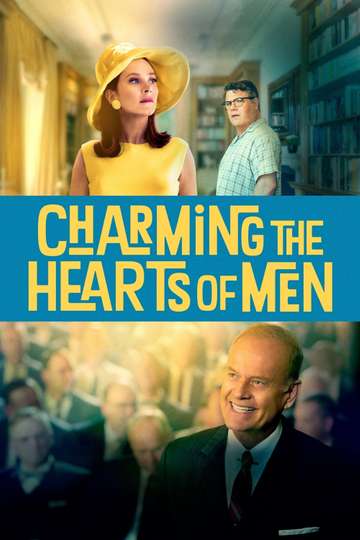
Charming the Hearts of Men


